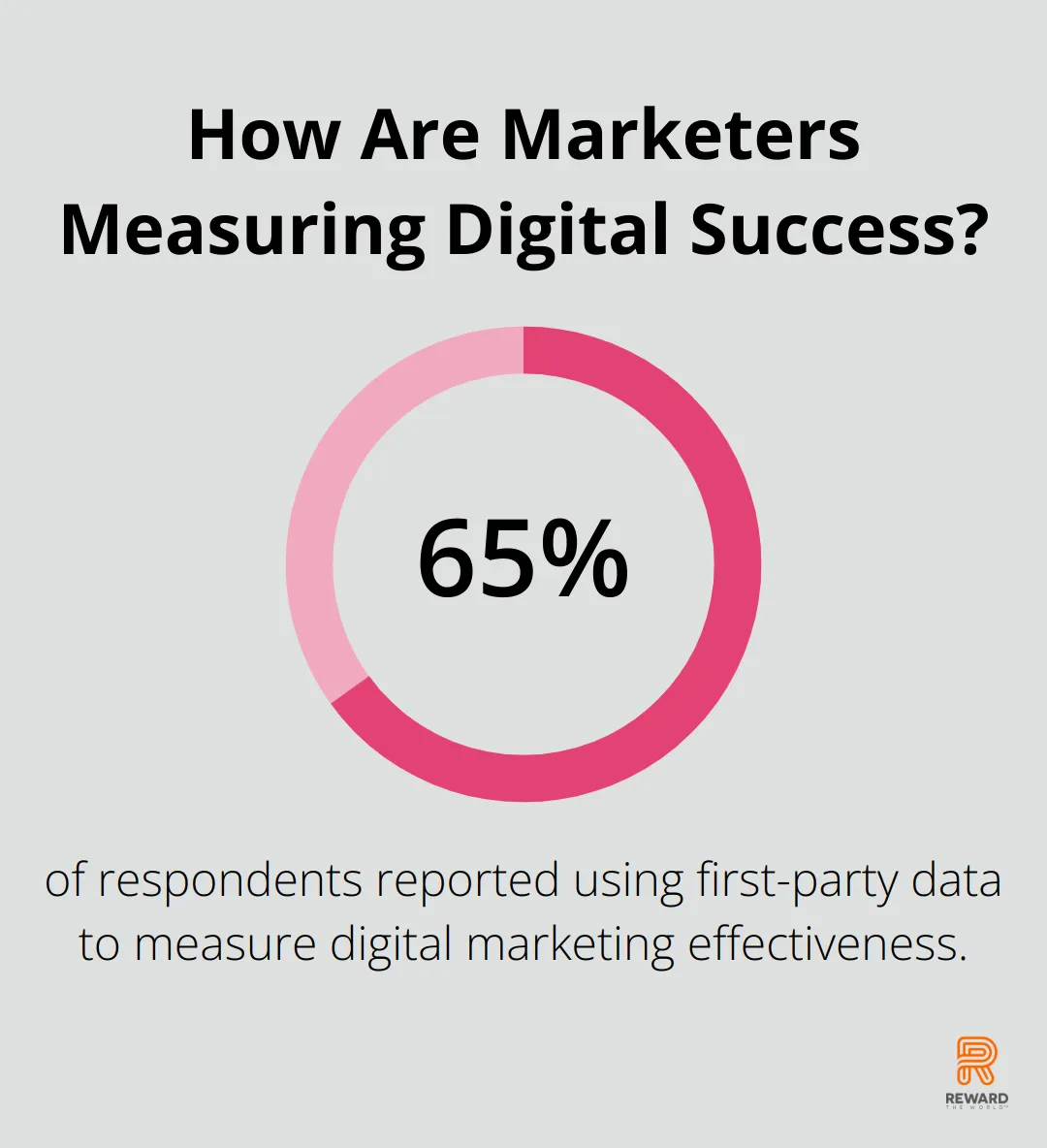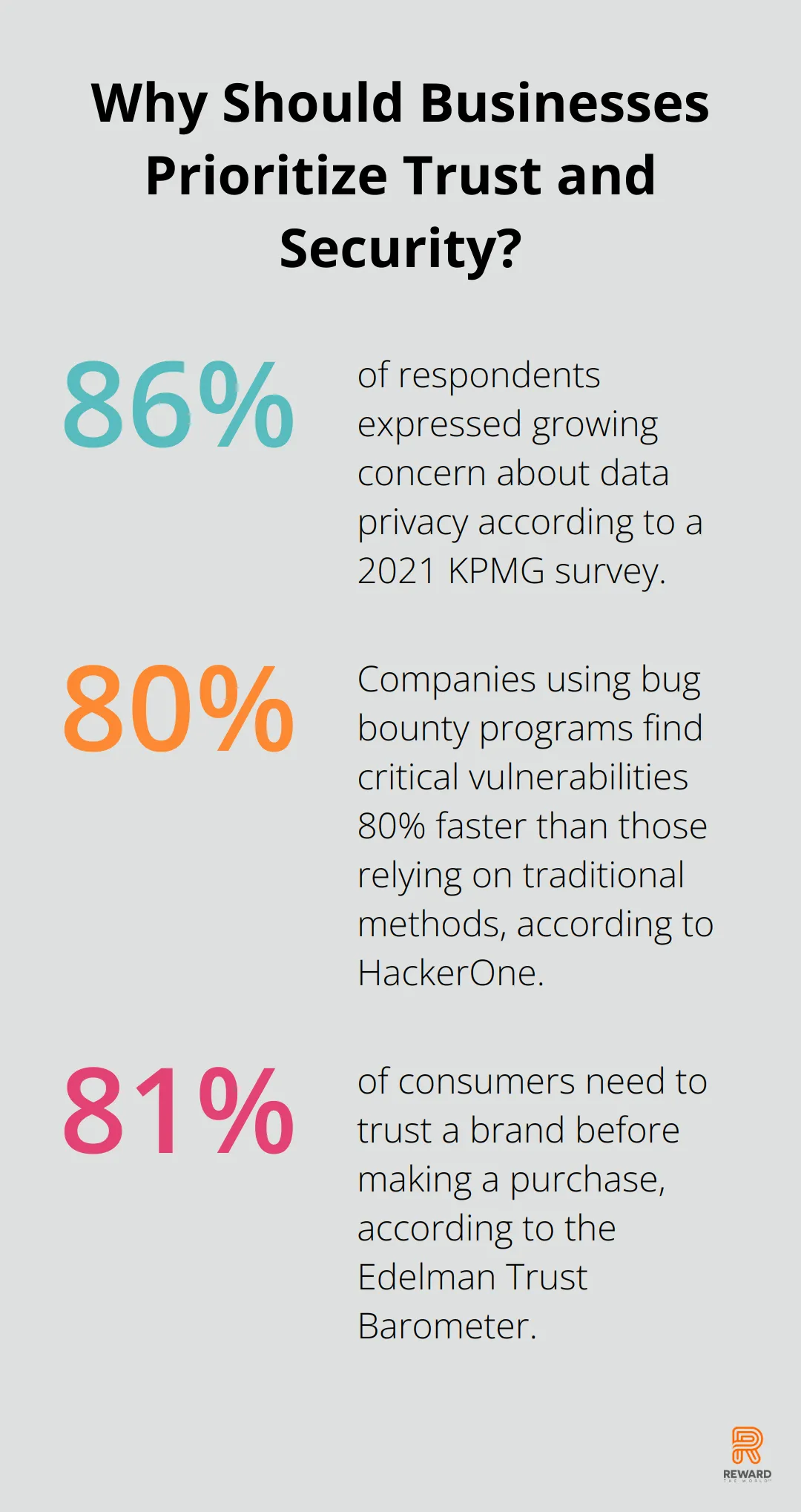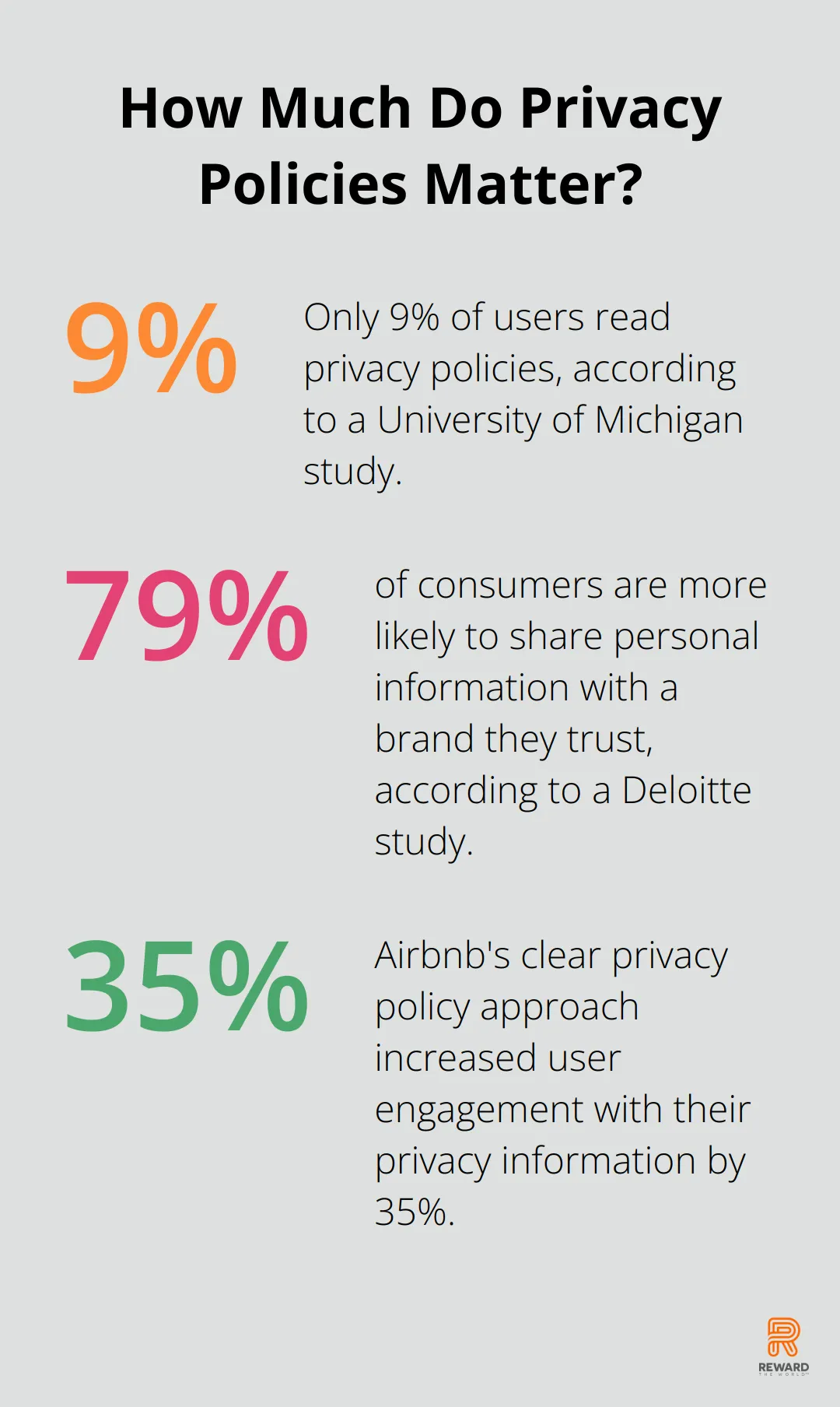
At Reward the World, we understand the importance of first-party data collection in today’s digital landscape. However, this practice comes with significant ethical challenges that businesses must navigate carefully.
Data ethics has become a critical consideration as companies strive to balance their need for valuable customer insights with the responsibility to protect user privacy and maintain trust. This blog post explores the ethical minefield of first-party data collection and offers practical guidance for businesses to collect and use data responsibly.
Understanding First-Party Data Collection
What is First-Party Data?
First-party data refers to data a company collects directly from customers and audiences on its own channels. It serves as the gold standard of data collection, offering accurate insights into customer behavior, preferences, and interactions with our brand.
Sources of First-Party Data
We gather first-party data through various touchpoints:
- Website interactions (browsing, purchases, form submissions)
- Mobile app usage
- Email campaign responses
- Customer service interactions
- Surveys and feedback forms
The Power of First-Party Data
First-party data outperforms third-party data in several ways. It boasts higher accuracy (as we collect it ourselves) and relevance (focusing specifically on customer interactions with our brand).
A study reveals that 65% of respondents reported using first-party data to measure digital marketing effectiveness. This data enables the creation of highly personalized experiences, which improves customer satisfaction and loyalty.
Implementing First-Party Data Collection
To effectively collect first-party data, we recommend:
- Clear communication of the value exchange
- Use of a Customer Data Platform (CDP) to centralize data
- Implementation of progressive profiling
Challenges and Considerations
While first-party data proves invaluable, its collection and use must adhere to ethical standards. The 2018 Facebook-Cambridge Analytica scandal, which affected more than 87 million users, underscores the importance of responsible data handling.

Transparency and user consent should take priority in data collection practices. Compliance with regulations like GDPR (General Data Protection Regulation) and offering users control over their data are essential steps.
As we move forward, it’s important to recognize that the ethical use of first-party data extends beyond mere collection. The next section will explore the ethical concerns that arise in the process of first-party data collection and how businesses can navigate these challenges responsibly.
Ethical Pitfalls in First-Party Data Collection
Privacy and Consent Challenges
Privacy stands at the forefront of data collection concerns. A 2021 KPMG survey revealed that 86% of respondents expressed growing concern about data privacy. This statistic underscores the necessity for robust consent mechanisms.

Companies must implement clear opt-in processes. A checkbox hidden in terms and conditions no longer suffices. Instead, organizations should use layered consent forms that explain data usage in simple terms. This approach increased consent rates by 30% in a study by the Norwegian Consumer Council.
Data Security Imperatives
Data breaches can shatter trust and inflict financial damage. IBM’s Cost of a Data Breach Report states that the average cost of a data breach reached $4.35 million in 2022.
To reduce risks, companies should implement end-to-end encryption for data in transit and at rest. Regular security audits and penetration testing prove essential. Bug bounty programs offer another layer of protection; HackerOne reports that companies using such programs find critical vulnerabilities 80% faster than those relying on traditional methods.
Transparency in Data Usage
Customers demand to know how companies use their data. The Edelman Trust Barometer shows that 81% of consumers need to trust a brand before making a purchase.
Organizations should create clear, jargon-free privacy policies. They should exceed legal requirements and provide real-world examples of how data improves user experience. A data dashboard where users can view and manage their information can significantly boost trust. Deloitte Digital found that this approach led to a 22% increase in customer trust for companies implementing such features.
Avoiding Discrimination and Bias
Data-driven decisions can unintentionally perpetuate biases. Amazon’s AI recruiting tool (which showed bias against women) serves as a cautionary tale, forcing the company to abandon the system.
To prevent such issues, companies should regularly audit their algorithms for fairness. They should use diverse datasets for training AI and machine learning models. Implementing checks and balances, such as human oversight for critical decisions, can help mitigate these risks.
The ethical use of first-party data requires constant vigilance and adaptation to new regulations. Companies must prioritize user interests to build trust, enhance their reputation, and create more value from their data collection efforts. The next section will explore best practices for ethical first-party data collection, providing actionable strategies for businesses to implement.
How Businesses Can Ethically Collect First-Party Data
Create User-Centric Privacy Policies
Clear and simple privacy policies are essential. A University of Michigan study found that only 9% of users read privacy policies. We recommend using plain language, infographics, and short video explainers to communicate data practices effectively.

Airbnb’s privacy policy serves as a prime example. It uses clear headings and simple language to explain complex concepts. This approach increased user engagement with their privacy information by 35%.
Implement Granular Consent Mechanisms
Obtaining informed consent is vital. The GDPR has had a significant impact, with fines totaling over €1.6 billion since its 2018 implementation. To avoid penalties and respect user choices, businesses should implement granular consent options.
Users should have the ability to choose which data they share and for what purposes. Granting consent allows Google to use user data for targeted ad campaigns, while denying it significantly limits personalized ad exposure for the user. This level of control can increase opt-in rates by up to 40% (according to a Future of Privacy Forum study).
Prioritize Data Security
Data breaches can be catastrophic. The cost of a data breach in 2022 was $4.35M – a 12.7% increase compared to 2020, when the cost was $3.86M.
Companies should implement end-to-end encryption, use secure cloud storage solutions, and regularly update security protocols. Those that detected and contained a breach in less than 200 days spent on average $1.12 million less than those that took longer.
Conduct Regular Data Audits
Data audits help maintain ethical practices. They identify unnecessary data collection, outdated information, and potential biases in datasets.
We suggest comprehensive data audits at least twice a year. These audits should assess the relevance of collected data, check for compliance with current regulations, and evaluate the effectiveness of data protection measures.
Empower Users with Data Control
Giving users control over their data isn’t just ethical-it’s good for business. A Deloitte study found that 79% of consumers are more likely to share personal information with a brand they trust.
Businesses should implement a user-friendly dashboard where customers can view, edit, and delete their data. Google’s My Activity page exemplifies this approach, allowing users to see and control the data collected across Google services.
Ethical data collection requires ongoing attention to changing regulations, emerging technologies, and evolving consumer expectations. Companies that prioritize user privacy and data protection can build trust, enhance their reputation, and create more value from their first-party data collection efforts.
Final Thoughts
Ethical considerations must lead our first-party data collection strategies. Companies that prioritize data ethics position themselves for long-term success. Transparent policies, robust security measures, and user-centric control mechanisms create a foundation of trust with customers, which translates into increased engagement and loyalty.

We anticipate several trends will shape the future of ethical data collection. Increased regulation will likely continue, with more countries adopting stringent data protection laws. AI and machine learning will require careful oversight to prevent bias and ensure fairness in data analysis.
Reward the World understands the importance of ethical data practices in building strong customer relationships. Our global incentives platform serves 250 million users while ensuring GDPR compliance and robust analytics. This approach allows businesses to enhance customer engagement without compromising on data ethics standards.
